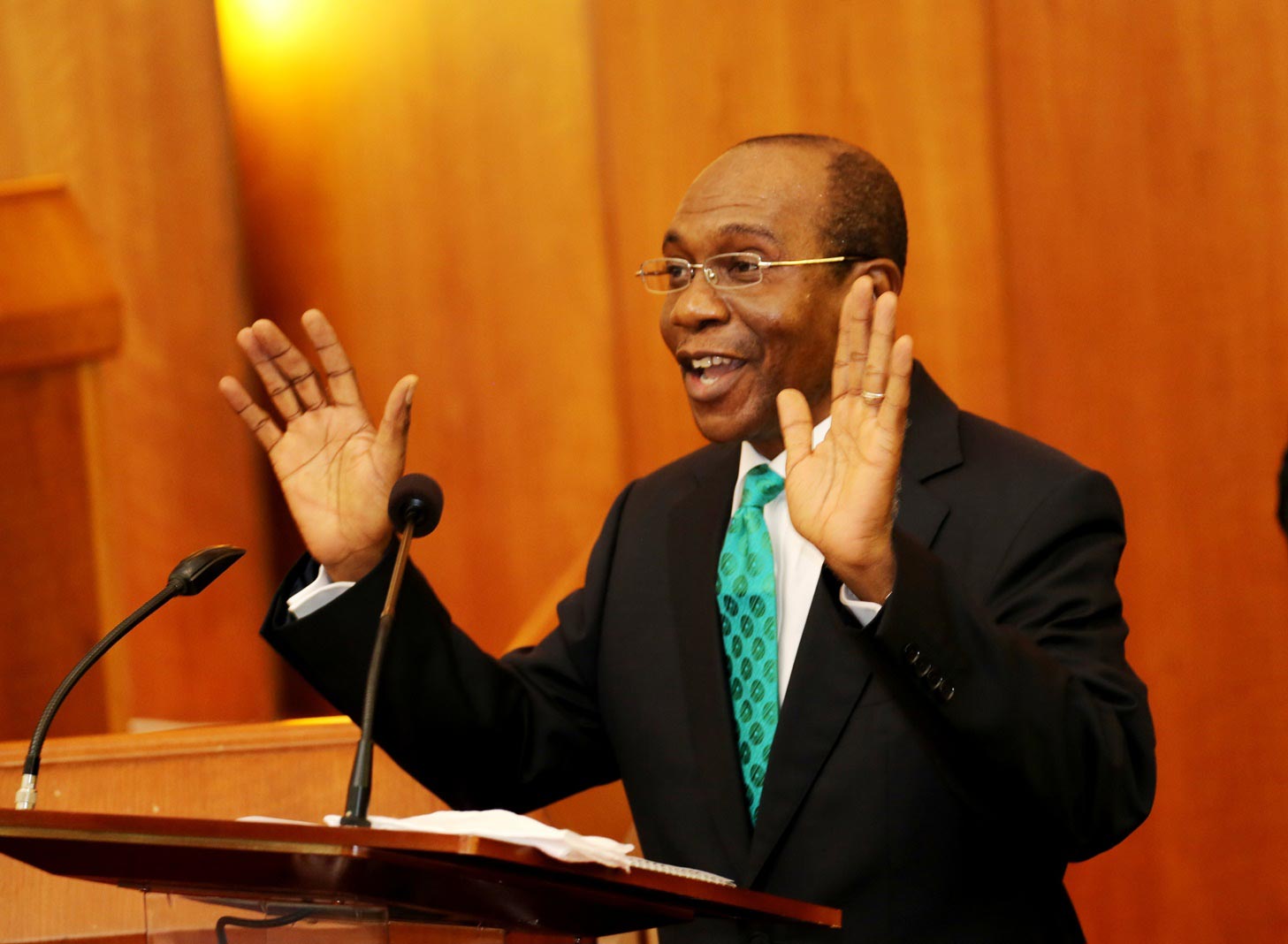The Governor of the Central Bank of Nigeria, Godwin Emefiele may be reportedly considering the option of quitting his job at the country’s apex bank owing to President Muhammadu Buhari’s approach to fiscal and monetary issues.
According to an findings by Daily Post, Emefiele is looking to quit because of a number of issues including the current state of the economy and most especially an order by the president for him to change the colour of Naira notes.
This would bring to mind measure put in place by Buhari during his military rule where he implemented a policy aimed at curbing local currency hoarding by ordering a change of colour for the Naira notes which forced holders of old notes to exchange them within a limited period.
ALSO READ: CBN Warns That Nigerian Economy Could Slip Into Recession In 2016.
It was gathered that Emefiele was close to tendering his resignation a few days ago over his reluctance to implement President Buhari’s directive, but was urged by several prominent Nigerians to stay, including two bank chairmen, who are both said to hail from South South states and had previously served as Managing Directors of their respective banks.
RELATED: Buhari’s Directionless Government Is Destroying Nigeria’s Economy – Reuters 100 Day Report
Investigations further revealed that at a recent meeting with close friends in Abuja, the former Managing Director of Zenith Bank had complained that President Buhari was yet to have a monetary policy, as he needed an idea as to how to guide himself going forward.
It would be recalled that Emefiele had recently hinted that the Nigerian economy might slide into recession in the coming months.
ALSO READ: Lack Of Fiscal Directive Responsible For Nigeria’s Tanking Economy – CBN Reveals
He had explained that the country’s Gross Domestic Product (GDP) grew by 2.35% in the second quarter of 2015, a decrease from the 3.96% recorded in the first quarter and 6.54% recorded in the last quarter of last year.
Nigeria’s real GDP growth is projected to stabilize at 2.635 in 2015, a far cry from the 6.22% recorded in 2014.
Emefiele also cited the non-payment of staff salary as another factor for the reduction in consumer demand.







